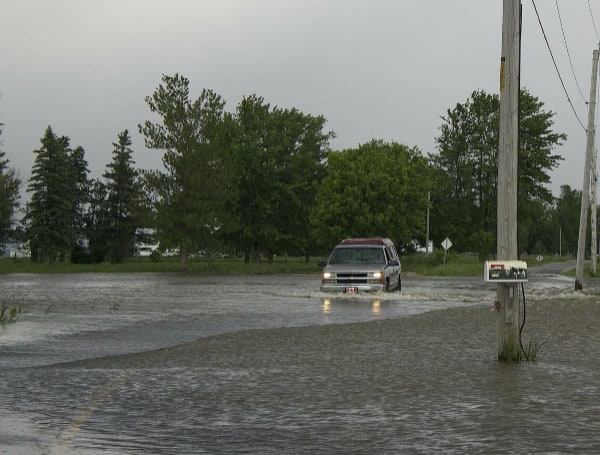TFP File Photo Florida has joined nine other states in a federal lawsuit challenging an overhaul of the National Flood Insurance Program, arguing
Florida has joined nine other states in a federal lawsuit challenging an overhaul of the National Flood Insurance Program, arguing the new system is flawed and will drive up premiums for many property owners.
The lawsuit, led by Louisiana Attorney General Jeff Landry, was filed Thursday in the federal Eastern District of Louisiana against defendants including the Federal Emergency Management Agency. It came after the program changes, which were phased in starting in 2021, became fully effective April 1.
The program plays a major role for Florida residents, many of whom are required to have flood insurance because of home mortgages. A document in the lawsuit said the program includes about 1.391 million Florida policies, with total coverage of nearly $367 billion.
In the news: St. Petersburg Police Warn Of Increase In Sextortion Cases
Louisiana, Florida and the other states are challenging the new system, known as “Risk Rating 2.0: Equity in Action,” that changed the methodology for determining flood-insurance prices. Among other things, the lawsuit alleges the system improperly considers “hypothetical” future risks and doesn’t properly account for mitigation projects to protect properties from flood damage.
“While the agency (Federal Emergency Management Agency) paints a picture of nuanced calculations using massive data repositories that reveal a property’s individualized risks, the reality is much simpler: Flood insurance is going to be much more expensive for pretty much everybody,” the lawsuit said.
A section of the lawsuit that focused on Florida said “high insurance rates will cause people to leave the state of Florida because they can no longer afford to live in the state. In addition, it will depress property values, particularly in areas where flood insurance is required.”
But FEMA said on its website that the revamped system takes into account more variables that affect flooding and will result in rates “that are actuarially sound, equitable, easier to understand and better reflect a property’s flood risk.” Also, for example, it said the previous system did not account for the costs of rebuilding homes.
In the news: Survey: 1-In-4 Floridians Would Ignore Hurricane Evacuation Warnings
“Policyholders with lower-valued homes may have been paying more than their share of the risk while policyholders with higher-valued homes may have been paying less than their share of the risk,” the agency said. “Risk Rating 2.0 was not just a minor improvement, but a transformational leap forward for the NFIP (National Flood Insurance Program).”
Attorney General Ashley Moody’s office signed on to the lawsuit for Florida. Along with Louisiana, other plaintiffs are Idaho, Kentucky, Mississippi, Montana, North Dakota, South Dakota, Texas, Virginia and numerous local governments in Louisiana.
The 146-page lawsuit makes a series of allegations, including that federal officials violated a law known as the Administrative Procedure Act by making changes that were “arbitrary and capricious.” As part of that argument, it pointed to the FEMA’s consideration of climate change, which it said “does not relate to the risk a property actually faces today.”
“Equity in Action uses catastrophe modeling, which takes into account future hypothetical events, including hypothetical events resulting from climate change,” the lawsuit said. “The agency does not disclose what these hypothetical events are, nor does the agency explain how the hypothetical events change based on hypothetical future climate activity.”
The lawsuit, in part, seeks an injunction against the new system and a requirement that federal officials disclose the methodology and data that have been used.
Android Users, Click To Download The Free Press App And Never Miss A Story. Follow Us On Facebook and Twitter. Signup for our free newsletter.
We can’t do this without your help; visit our GiveSendGo page and donate any dollar amount; every penny helps.

